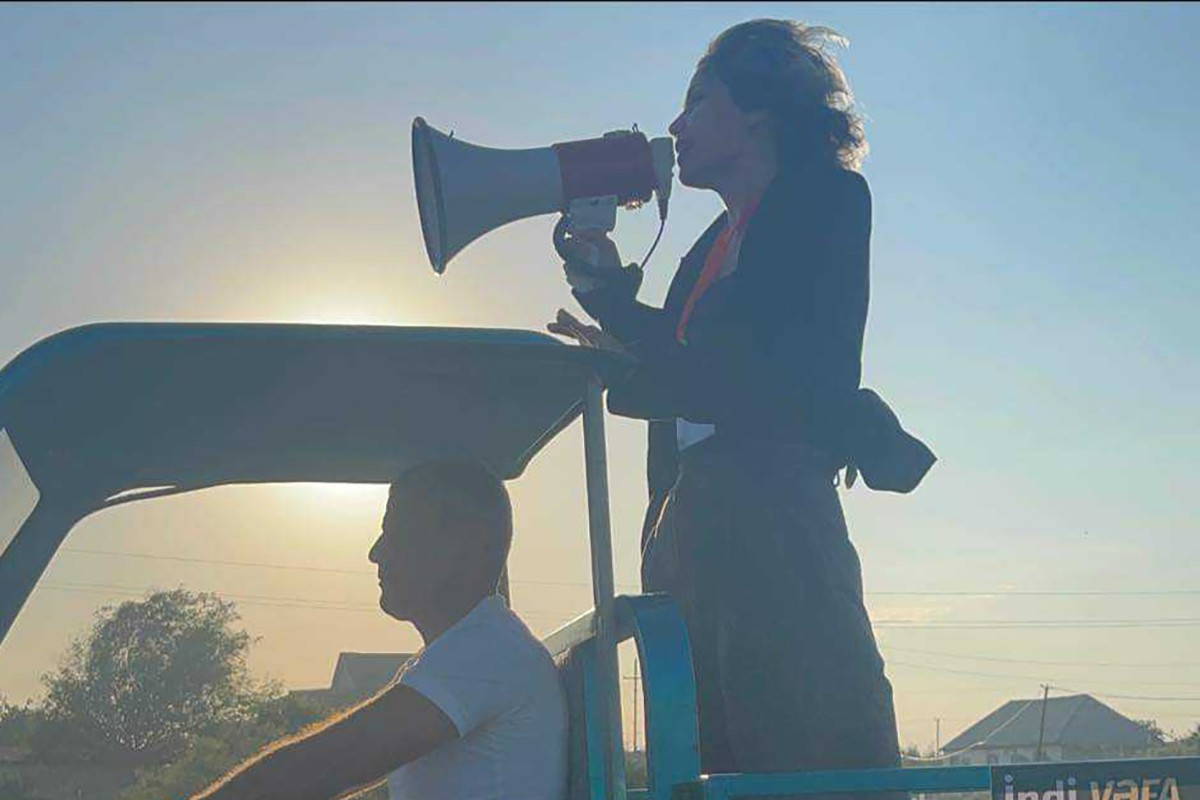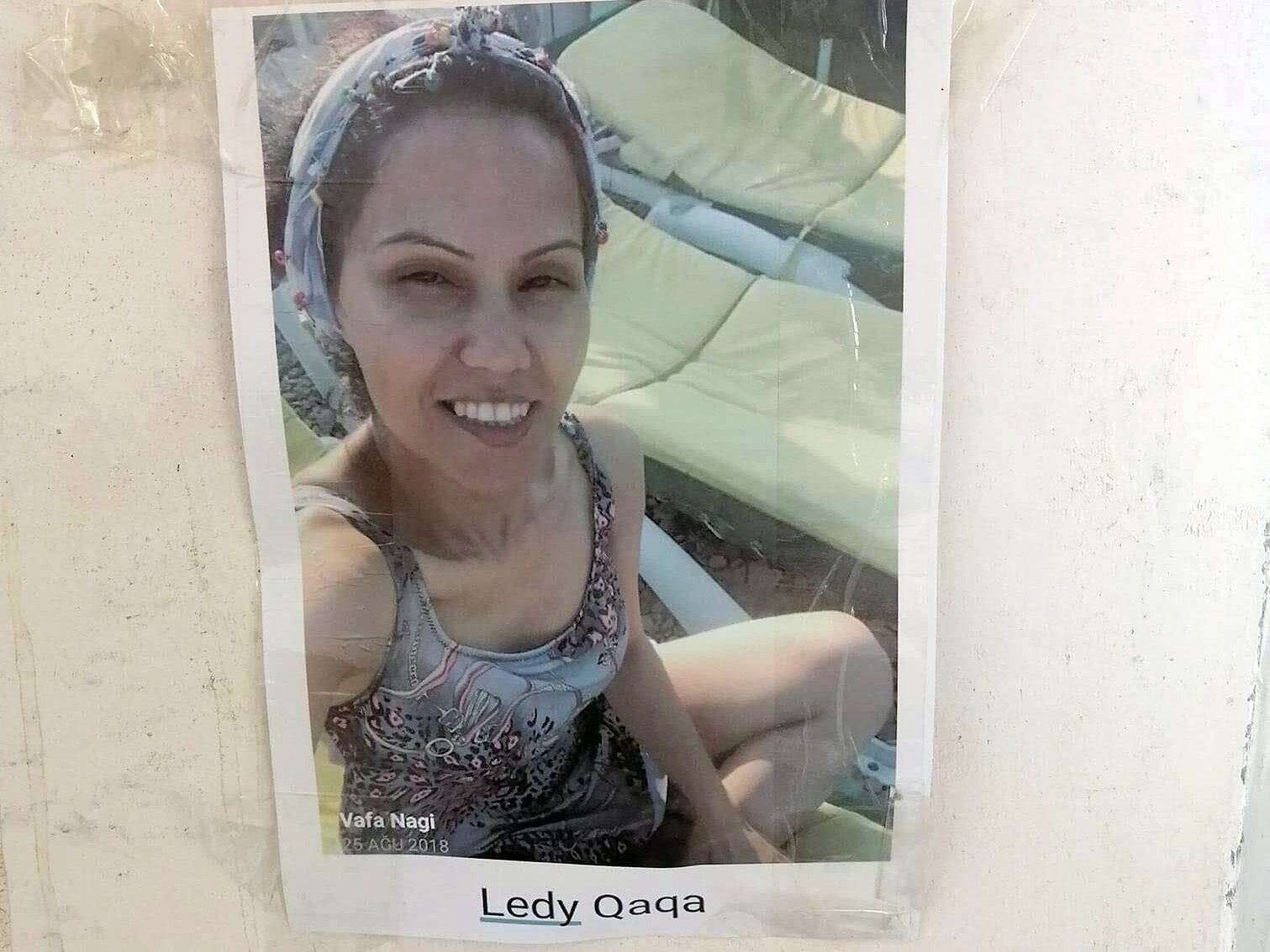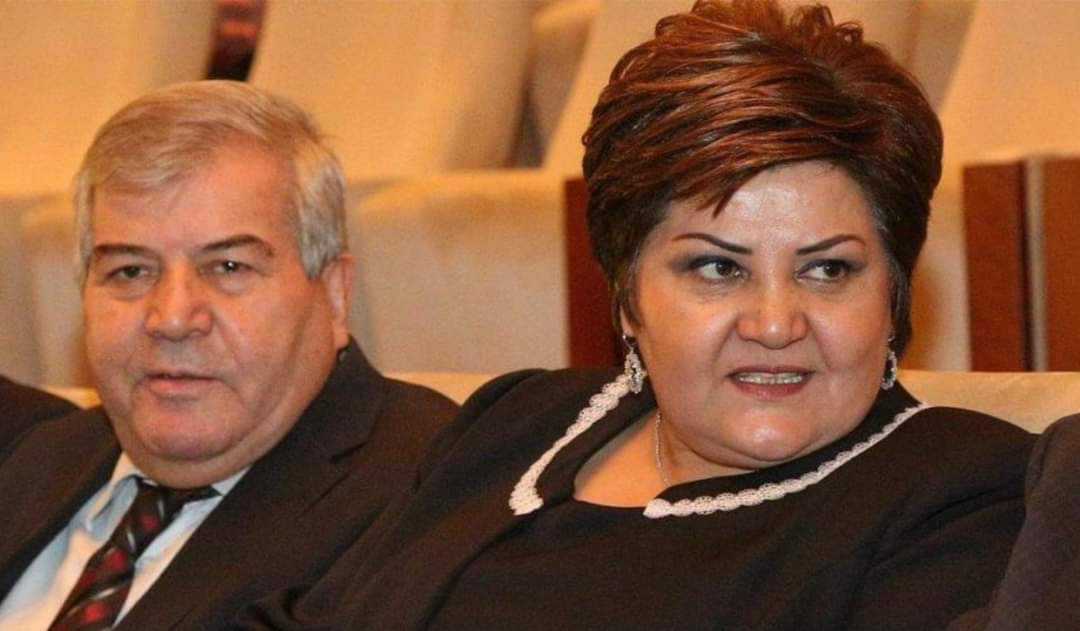Challenging the system in Azerbaijan’s parliamentary election

Few doubt the results of Azerbaijan’s parliamentary elections, due to held on 1 September. But despite this, some independent candidates are still trying to challenge the system.
‘Today, one of my observers, [Gular Farajova], was summoned to the police station for questioning’. This was posted by Vafa Naghi, who is running as an independent candidate in the Neftchala constituency, on her social media on Friday.
Naghi says Farajova was summoned by the police based on a complaint by a member of staff of her opponent — Tanzila Rustamkhanli.
Naghi says that while there are 11 candidates running in the Neftchala constituency, not everyone is actually interested in running a campaign.
Speaking to OC Media, Naghi says the number of candidates was because ‘the [central election] committee would like to collect more “inactive” people to divide the votes’.
Naghi says she has received positive support from constituents, who she says are following the process ‘as if it were a game between Barcelona and Real Madrid’.
These messages of support have come despite obstacles from local government agencies regarding Naghi’s campaign.
‘Local government agencies mobilised in support of Tanzila Rustamkhanli and they even glued her manifesto to the walls of government institutions, which is prohibited by law,’ Naghi says.
The Neftchala district is located approximately 170 kilometres from the capital, and is known for being the site of a previous struggle between Naghi and the chair of the municipality in the 2020 municipal elections, after she was elected to the local council to the surprise of many.

Naghi says that she actively uses social media platforms to broadcast all violations of the law that occur during her campaign. In one instance, Naghi shared that posters supporting Rustamkhanli’s campaign were stuck to the buildings of government agencies. She later captured members of Rustamkhanli’s team on video tearing down the posters.
Naghi’s team member, Gular Farajova, tells OC Media that she would not attend the police station despite being summoned.
‘Because I did not violate anyone’s rights, I did not insult anyone, and I understand that this police call was just to scare me’, she says.
Farajova says that in Neftchala everyone knows her, and knows how her family has struggled with the local government just because her father was a member of the opposition Musavat party.
Toghrul Allahverdi, who made the complaint against Farajova, tells OC Media that he would apply to the court regarding the humiliation and insults he says he faced on social media.
‘I, my family, and even my children were insulted by the trolls, by the people who know Vafa Naghi and her team members, and we will take juridical measures’, he says.
Allahverdi also dismissed accusations that his boss, Tanzila Rustamkhanli, was using insults to target Naghi, stating that many women work in the constituency and Rustamkhanli respects them.
Rustamkhanli is officially running as a member of the opposition Civic Solidarity Party (CSP), but few see her as representing real opposition to the government — she was awarded the Shohrat Order (the order of glory), by President Ilham Aliyev in 2020.
Rustamkhanli is running after her husband and the head of the CSP, Sabir Rustamkhanli, who previously held the Neftchala seat for many years, decided not to run this time. Neither of the Rustamkhanlis have strong links with Neftchala.

Inherited from generation to generation
Tanzila Rustamkhanli is not the only family member who appears set to inherit a parliamentary seat.
On 17 July, President Aliyev’s New Azerbaijan Party announced its list of candidates for the election. Of these, 66 were new candidates.
However, not all of those were really new. Ali Ahmadov, Mubariz Gurbanli, Khanlar Fatiyev, Sayyad Aran, and Eyvaz Gurbanov all sat as MPs in the past though they did not take part in the last election in 2020.
Others who have chose to step back and not stand for reelection appear to have done so in order for their children to run. For instance, one of the new candidates, Samir Valiyev, is the son of Ahmad Valiyev, a current MP for the New Azerbaijan Party.
Another candidate, Mahir Suleymanli, is the son of former MP Tahir Suleymanov, and another, Gunay Aghamali is the daughter of former MP Fazail Agamali.
In one instance though, that of Aygun Maniyeva, her father’s position in the Central Election Commission was seen as perhaps a step too far, and she was later replaced by a different candidate, Parvana Piriyeva.
A candidate elected before the elections based on a directive from ‘above’
As soon as the election campaign began, information began to spread about which candidates were being ‘chosen from above’.
On 26 August, a recording was posted online of the Secretary of the Neftchala District Election Commission, Alakbar Zahidov, insisting that Tanzila Rustamkhanli would win.
The recording was of a call between Zahidov and a local resident.
‘Sabir [Rustamkhanli] made the roads in the village of Gahramanlar, you know. And he repaired the roads near the fair before the election. Do you know about that?’, he is heard saying. ‘No one will let anyone else be elected.’
He goes on to tell the local resident, they should not support Vafa Naghi.
OC Media reached out to the Central Election Committee for a statement, but did not receive a response.
Bashir Suleymanli, a human rights defender, tells OC Media that the Central Election Committee should take official measures regarding this incident, and that Vafa Naghi should apply the case to the Main Prosecutor’s Office.
‘How can the election result be determined legally if this case affects the election result even before the election?’ Suleymanli asked.
Naghi says she had applied to the Main Prosecutor Office and was waiting for the response.
But her case is far from unique. ‘Local state agencies bring people to pro-government candidates’ meetings’, says another independent candidate, Rashad Dadashov.
Dadashov is running against Gunay Aghamali, the daughter of former MP Fazail Agamali, in the Neftchala-Salyan-Bilasuvar constituency.
‘We have information proving that she is using the support of the local government and that people were gathered to her meetings with the “help” of government agencies’, he says.
Dadashov mentioned that local government agencies used a variety of coercive measures to gather support for the candidates ‘chosen from above’, including cutting the water supply to villages.
‘For the meetings with Aghamali, they use state agency employees from schools, kindergartens, hospitals, etc. If the people refuse to join the meetings, local agencies threaten that they will be refused services from government agencies.’
Naghi has few illusions that she will be allowed to win, but continues to campaign because of the support she receives from the local community.
‘Sometimes I feel like maybe I’m an imposter and this is not right, but then every time I encounter with the people’s support,’ she says.









